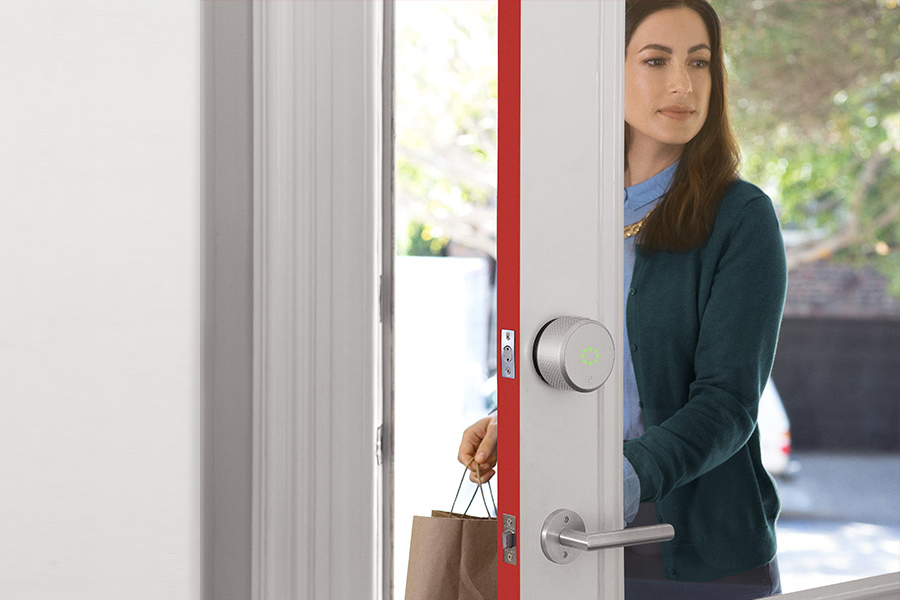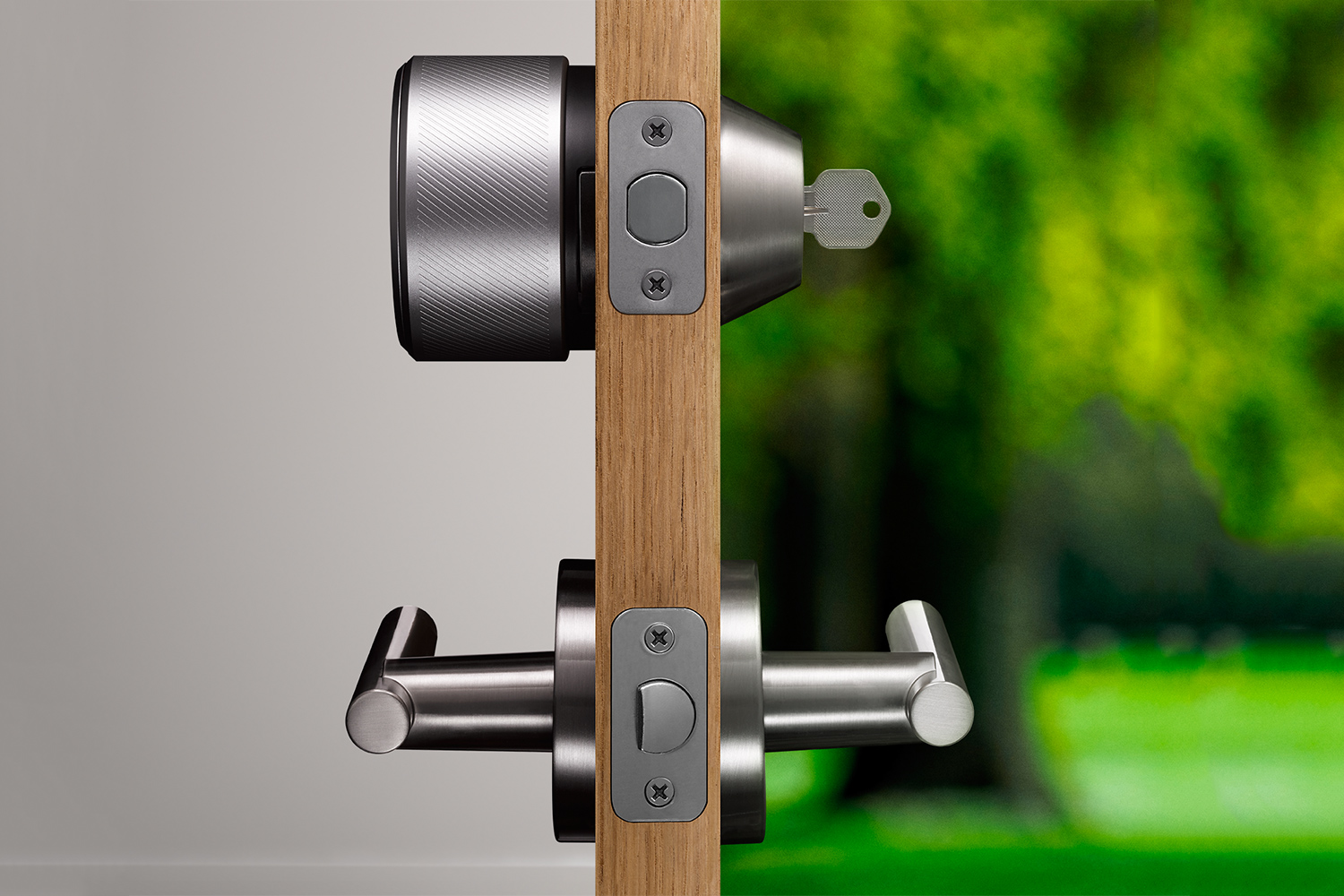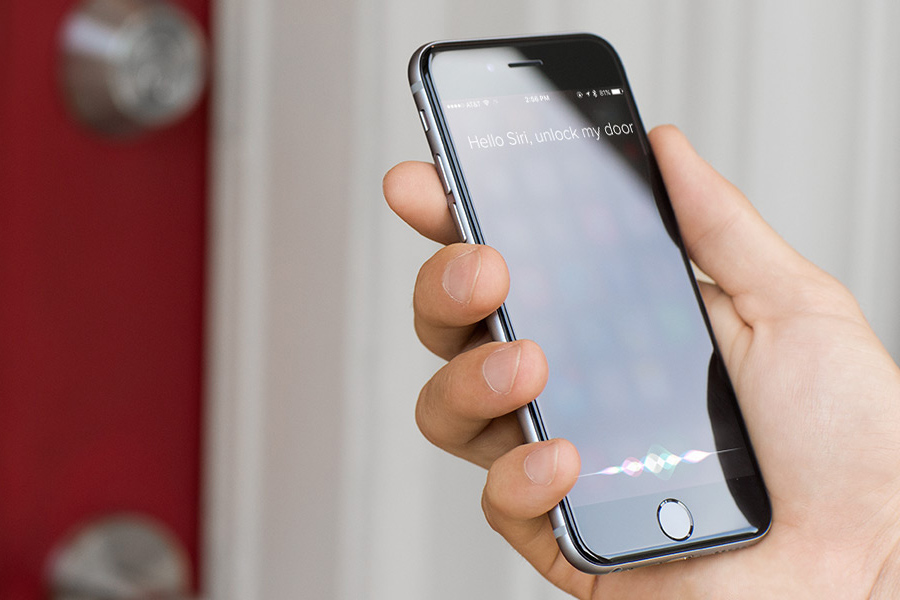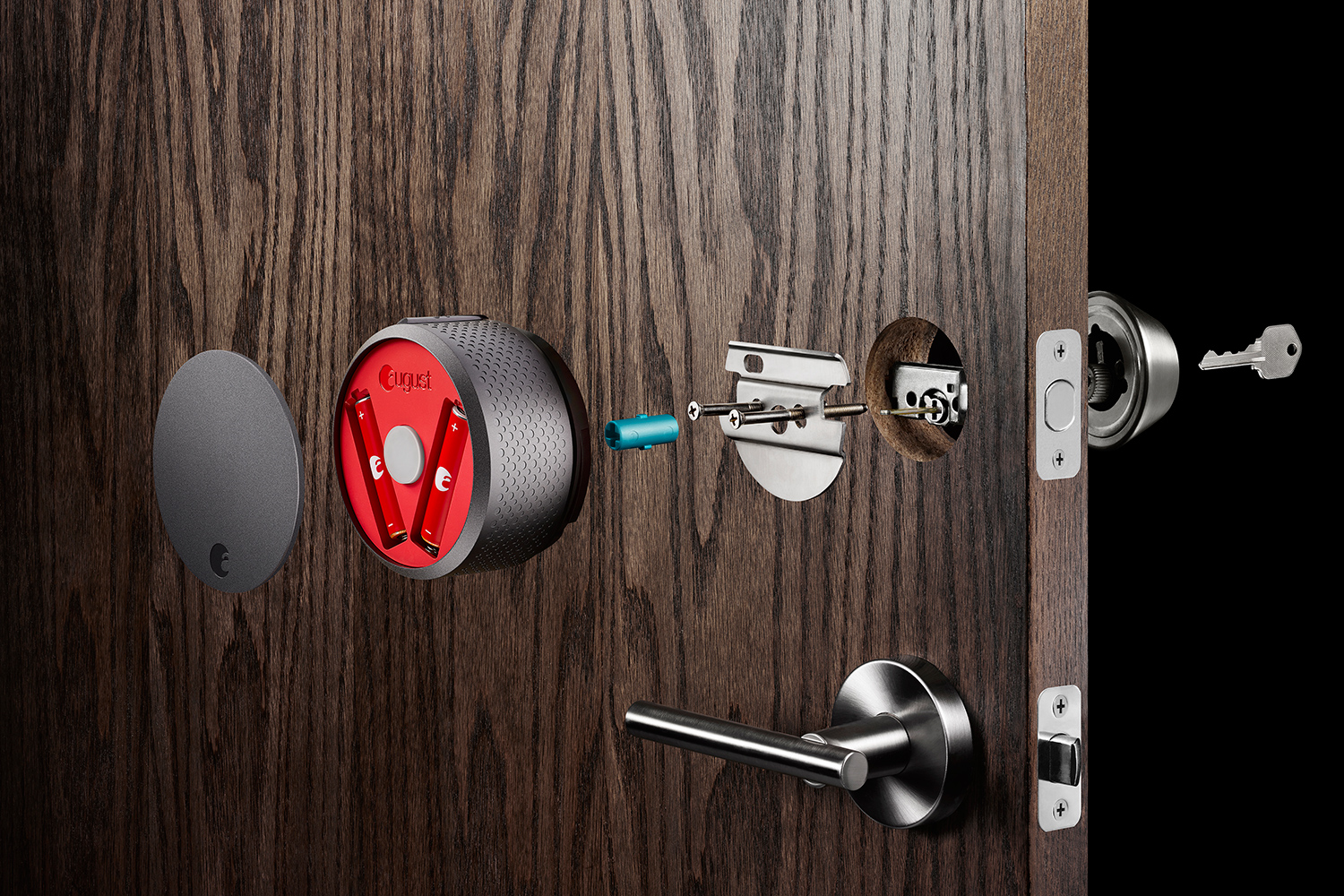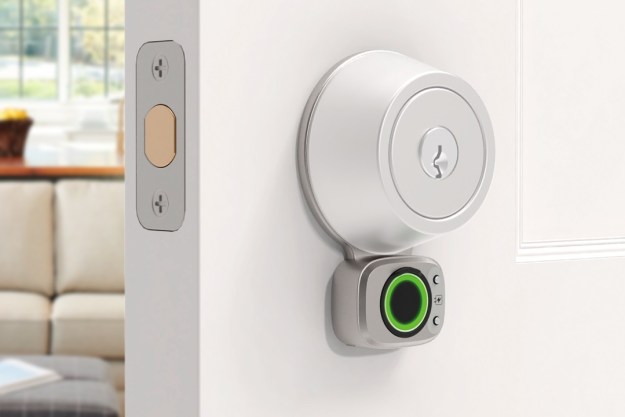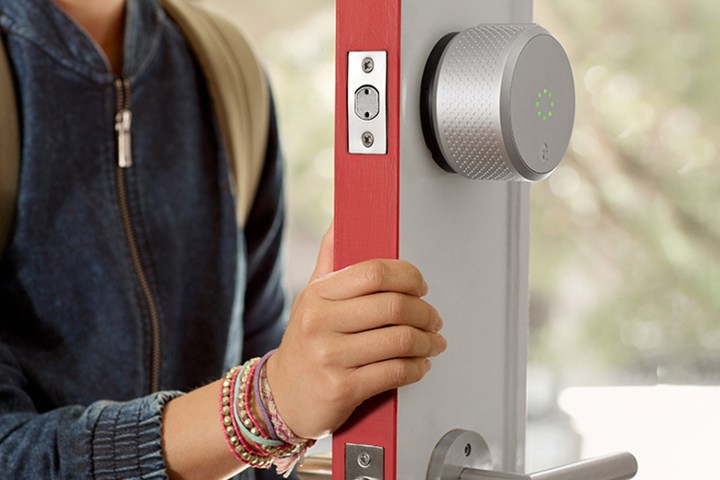
For the third installment in our Digital Trends Smart Apartment series, we’re looking at locks. They’re controversial. Many people want to make their homes smarter for security reasons, and adding a smart lock that could be hacked makes a lot of people nervous. But they’re also undeniably convenient, because some automatically unlock for you and the friends you have staying in town, all without pulling out or handing over keys.
But can a smart lock work for apartment dwellers? It seems like a big change and one that won’t make landlords happy. Not to worry. There’s definitely an option.
Incognito
A few months ago, I had several family members staying with me at my apartment, where I had a lock with a keypad. I was rolling the dice that my landlord wouldn’t knock and door and see the ostentatiously oversized lock that definitely didn’t fit her key to my apartment. But it was very convenient to give my family the four-digit code, so they could come and go as they pleased while I was at work.
For apartment dwellers, there’s really only one choice for a smart lock: The August.
So far, the August is the only real smart lock solution I’ve found for apartment dwellers. That’s because it doesn’t replace your whole lock, just the thumb turn on the inside. That means your landlord will still be able to get into your apartment and hopefully won’t care that you have a ginormous cylinder hanging on the inside of your door — just don’t lose the original that came with your apartment, and you should be good.
Because my condo association wants all the front doors to look uniform, I couldn’t get a keypad smart lock, even if I wanted. And while the August lock is inconspicuous on the outside of your door, it has a pretty large footprint on the inside of it. In fact, I had to remove the plate that attaches to my handle to install it on my door. I didn’t have this problem at my last apartment, but you should keep in mind that the August isn’t entirely universal.
Wink’s Hub 2 is compatible with August, and it also works with both Siri, thanks to HomeKit, and Alexa.
Easy does it
The August has a few other things going for it, as well. It’s the easiest lock to install because you don’t need to remove the deadbolt and outside cylinder. It should take you 10 minutes, tops. It has an Auto-Lock feature that locks your door if it’s been open for between 30 seconds and five minutes, depending on your setting. Using Auto-Lock, I nearly locked myself out after running down the stairs to get the mail in my jammies without my phone or keys, so that would’ve been a nightmare. I promptly turned it off after that.
Thanks to geofencing, the Auto-Unlock feature unlocks your door after you’ve returned home from being out. That’s my favorite feature, and it works great in an apartment. I have heard some users with bigger homes have issues with it, because they’ll go out into their backyard, for example, and the lock thinks they’ve actually left home.
If you just want to use your phone to lock and unlock your door, the August makes it really intuitive. You open the app, and a bright red circle greets you, letting you know your door is locked. Tap the circle, it turns green, and the lock turns. You also get an activity log of every time it locks and unlocks, and you can grant people access to your home.
Guests will need the app, too, but you can either make them owners (if you know and love them), which lets them use features like Auto-Unlock, or restrict their access to every weekday between 3:00 p.m. and 4:00 p.m. (in the case of your dog walker) or just over a weekend (for Airbnb guests).
Using Auto-Lock, I nearly locked myself out after running down the stairs to get the mail in my jammies.
In the lock’s settings, you can name it, turn on sounds, and add accessories like Control, a separate device that plugs into an outlet and lets you lock and unlock your door remotely. It’s also necessary to use the lock with Alexa. If you don’t want the lock to play a little jingle every time it opens and closes, you can turn that off. When it does open and close, it does so fairly quietly, an important quality when your neighbors’ doors are only a few feet away.
The August isn’t perfect; it doesn’t have a tamper alarm, for example. That means it won’t shriek if someone’s trying to jimmy your lock. My keypad lock had this; it went off once when the FedEx guy knocked on my door, so that made me feel pretty safe.
Lock it down
Since my version of the August is HomeKit enabled, I can use my phone to say, “Siri, lock my door.” It works quite well, but Siri can also unlock my door — and that’s where the passcode comes in. If I have my phone unlocked, I can ask Siri to unlock my door, and she will. If I don’t, she’ll have my input my passcode first. If I didn’t have a passcode on my phone, I’d be asking for trouble, as shown by what happened with a Missouri man who had an iPad that wasn’t passcode protected controlling his August lock. Still, I find the Auto-Unlock feature much easier than pulling out my phone.
I also enabled the August skill in Alexa, which lets me lock my door and check to see whether or not it’s locked. It doesn’t allow me to unlock it, probably because anyone could just shout through my door to make that happen. The wording to get
Let the right one in
August (the company) says it takes security very seriously, as does Apple, which is why HomeKit-certified products have the company’s chips and firmware incorporated. Still, the lock obviously grants access to your home, so it’s understandable if you’re wary about installing it.
The August works with If This Then That (IFTTT), and some people actually use it to get around the “Alexa won’t let me unlock my door with my voice.” A stranger wanting to break in would have to guess that you have an August, since it’s invisible from the outside of the door, and you could change the wording slightly, but for me, it wasn’t worth the risk.
Breezing in my door when I’m laden with bags of groceries is one of my favorite parts of having a smart apartment, but I wouldn’t be surprised if the squirm factor make this a no-go for others. Also, I still never, ever leave home without my keys … just in case.
Editors' Recommendations
- Yale Assure Lock 2 Touch picks up new features with the Z-Wave Smart Module
- Lockly is bringing Matter and facial recognition to your front door in 2024
- Here’s how to throw a killer Halloween party with your smart home
- This $4,000 smart door comes packing a Ring video doorbell and Yale smart lock
- Aqara launches U100 smart lock with full Apple HomeKit support
